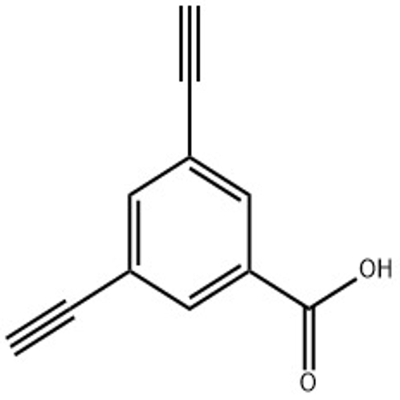-
Categories
-
Pharmaceutical Intermediates
-
Active Pharmaceutical Ingredients
-
Food Additives
- Industrial Coatings
- Agrochemicals
- Dyes and Pigments
- Surfactant
- Flavors and Fragrances
- Chemical Reagents
- Catalyst and Auxiliary
- Natural Products
- Inorganic Chemistry
-
Organic Chemistry
-
Biochemical Engineering
- Analytical Chemistry
-
Cosmetic Ingredient
- Water Treatment Chemical
-
Pharmaceutical Intermediates
Promotion
ECHEMI Mall
Wholesale
Weekly Price
Exhibition
News
-
Trade Service
4,6-BIS(DIFLUOROMETHOXY)-2-(METHYLTHIO)PYRIMIDINE (DFMIT) is a synthetic compound that has gained significant attention in the chemical industry due to its unique properties and diverse range of applications.
Discovered in the early 2000s, DFMIT has become an important building block in organic synthesis and has found applications in various areas, including pharmaceuticals, agrochemicals, and material science.
One of the most significant applications of DFMIT is in the field of pharmaceuticals.
It is used as a key intermediate in the synthesis of various drugs, including HIV protease inhibitors, antibiotics, and anti-cancer drugs.
DFMIT's usefulness in pharmaceuticals is due to its ability to enhance the potency and selectivity of drugs, as well as its ability to improve drug delivery to target sites.
Another area where DFMIT is widely used is in agrochemicals.
It is a versatile intermediate that can be used in the synthesis of various agricultural chemicals, including herbicides, insecticides, and fungicides.
DFMIT has been found to be particularly useful in the synthesis of herbicides due to its ability to increase the efficacy of the herbicides and reduce their toxicity to non-target organisms.
DFMIT is also used in material science as a building block for the synthesis of conjugated polymers.
Conjugated polymers have important applications in the field of organic electronics, including organic light-emitting diodes (OLEDs) and organic solar cells (OSCs).
DFMIT's unique electronic properties make it an ideal building block for the synthesis of conjugated polymers with desirable electronic and optical properties.
In addition to these applications, DFMIT is also used in the synthesis of other organic compounds, including dyes, fragrances, and flavorings.
It is also used as a ligand in coordination chemistry, and as a catalyst in organic synthesis.
However, one of the significant challenges associated with DFMIT is its manufacture, which is relatively complex and requires specialized equipment and expertise.
The process involves several steps, including the synthesis of the starting materials, purification, and finally the synthesis of DFMIT itself.
Due to the complexity of the process, the cost of manufacturing DFMIT is relatively high, which can make it less accessible for some companies or researchers.
Another potential challenge associated with DFMIT is its potential environmental impact.
As with many organic chemicals, DFMIT is not particularly environmentally friendly, and its manufacture and use may contribute to environmental pollution.
Therefore, it is important to develop more sustainable methods for the synthesis of DFMIT and to explore alternative building blocks that can be used in its place.
In conclusion, 4,6-BIS(DIFLUOROMETHOXY)-2-(METHYLTHIO)PYRIMIDINE (DFMIT) is a versatile compound with a wide range of applications in the chemical industry.
It is used in pharmaceuticals, agrochemicals, material science, and other areas, and its unique properties make it an important building block in organic synthesis.
However, the manufacture of DFMIT is relatively complex and expensive, and its potential environmental impact is a concern.
Therefore, it is important to continue research and development in these areas to ensure the responsible and sustainable use of DFMIT and its derivatives.







